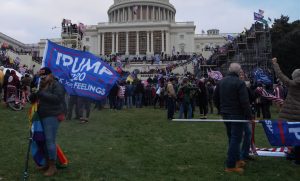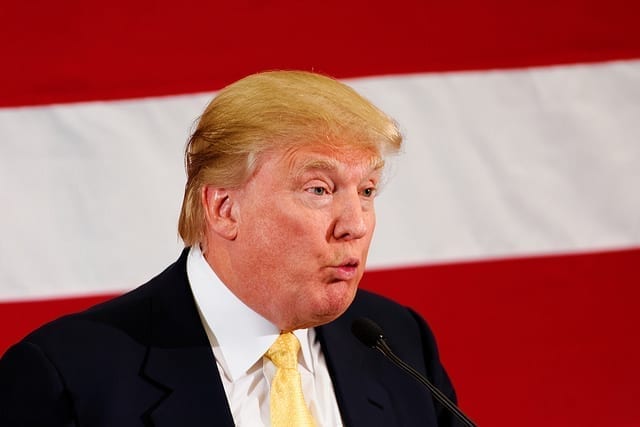In a groundbreaking ruling, the judge said that Trump’s former position as a sitting president of the United States does not absolve him of liability in some claims related to the January 6th attacks on the U.S. Capitol.
A federal judge has rejected former President Donald Trump’s motion to dismiss a series of lawsuits brought by Democratic lawmakers and U.S. Capitol Police who seek to hold him liable for the January 6 riots in Washington, D.C.
According to ABC News, D.C.-based District Judge Amit Mehta found that, if the allegations in the lawsuits are true, they could “establish a conspiracy involving President Trump,” his allies, and supporters.
“Viewing the foregoing well-pleaded facts in the light most favorable to Plaintiffs, and drawing all reasonable inferences in their favor, the court concludes that the Complaints establish a plausible conspiracy involving President Trump,” Mehta wrote.
Mehta’s 112-page ruling allows part of three separate lawsuits to move forward.

ABC News notes that the plaintiffs include Rep. Bennie Thompson, Rep. Eric Swalwell, and two Capitol Police officers, all of whom accuse Trump of orchestrating an attempted coup.
However, Mehta did not deliver a uniform victory for Trump’s political rivals: he removed several prominent defendants from the lawsuits, including Donald Trump Jr. and attorney Rudy Giuliani.
Mehta also refused requests from far-right groups, including the Oath Keepers and Proud Boys leader Enrique Tarrio, to remove themselves as co-defendants.
In his ruling, Mehta observed that there is sufficient evidence to suggest that Trump was involved in a far-ranging conspiracy to uphaul American democracy.
While Trump never met with many of the co-defendants—including the leaders of far-right groups—Mehta said that a conspiracy need not be arranged through face-to-face meetings or direct telephone calls.
Instead, Mehta opined that such conspiracies can take the form of “tacit agreements,” in which seemingly unrelated actors move toward a common objective.
“Recall, a civil conspiracy need not involve an express agreement; so, the fact that President Trump is not alleged to have ever met, let alone sat down with, a Proud Boy or an Oath Keeper to hatch a plan is not dispositive. A tacit agreement — one that is ‘implied or indicated … but not actually expressed’ — is enough,” Mehta wrote in his ruling. “The key is that the conspirators share the same general conspiratorial objective, or a single plan the essential nature and general scope of which is known to all conspirators.”
Mehta further said that President Trump may have been aware that his supporters were willing to take aggressive and potentially violent steps to ensure he stayed in power, and could have implicitly urged them to do so.
“The President’s January 6 Rally Speech can reasonably be viewed as a call for collective action,” Mehta said.
However, the most jarring aspect of Mehta’s ruling was that the judge explicitly stated that Trump—as a former U.S. president—is not necessarily immune from civil litigation pertaining to his time in office.
To deny a President immunity from civil damages is no small step. The court well understands the gravity of its decision. But the alleged facts of this case are without precedent,” Mehta said.
“After all, the President’s actions here do not relate to his duties of faithfully executing the laws, conducting foreign affairs, commanding the armed forces, or managing the Executive Branch,” Mehta wrote. “They entirely concern his efforts to remain in office for a second term. These are unofficial acts, so the separation-of-powers concerns that justify the President’s broad immunity are not present here.”
“When the President said to the crowd at the end of his remarks, ‘We fight. We fight like hell and if you don’t fight like hell, you’re not going to have a country anymore,’ moments before instructing them to march to the Capitol, the President’s speech plausibly crossed the line into unprotected territory,” Mehta said.


Join the conversation!